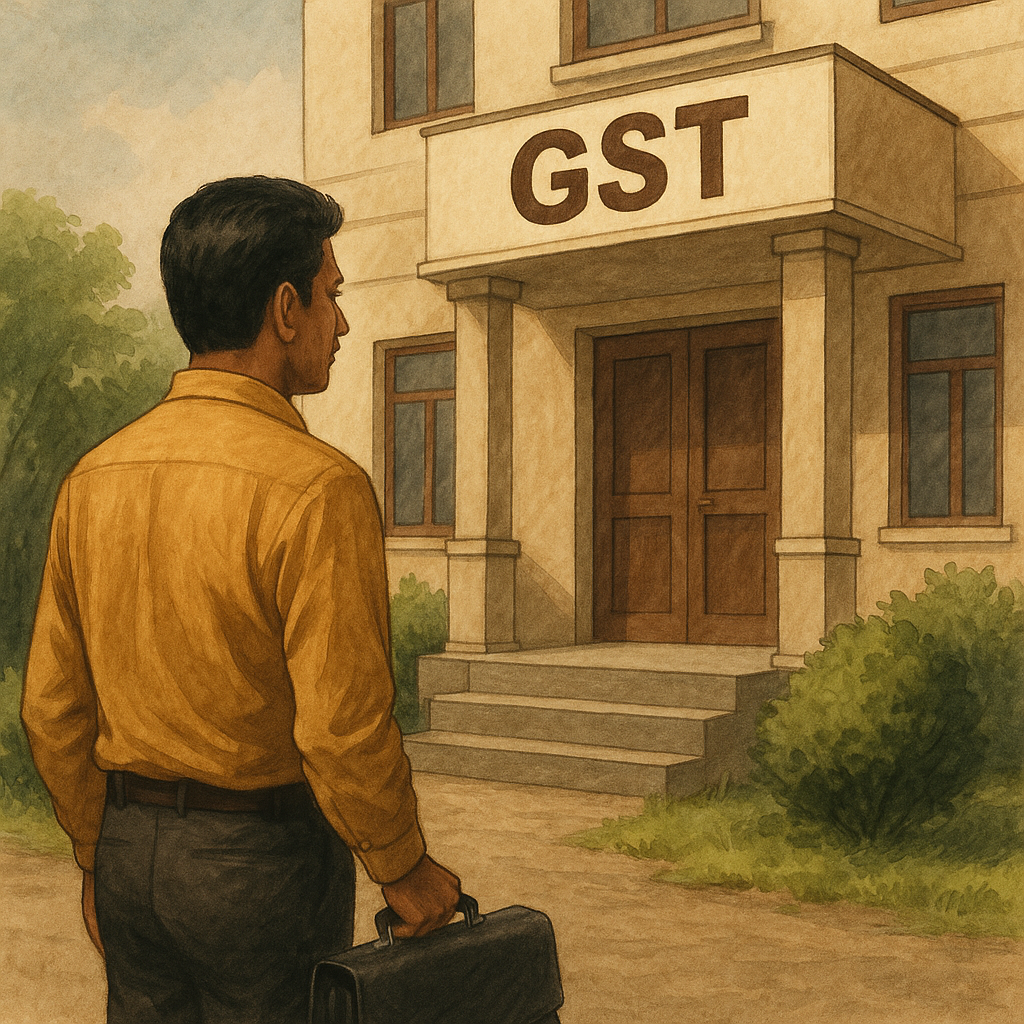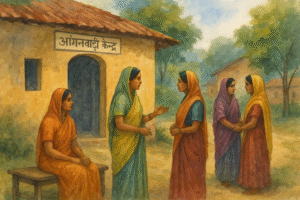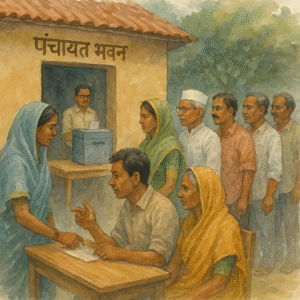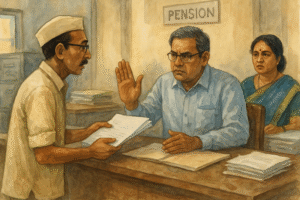The Patna High Court has clarified how taxpayers can seek relief when their first appeal under the Bihar Goods and Services Tax Act, 2017 (BGST) is rejected as time-barred—especially in light of a special, time-bound relaxation issued by the Central Board of Indirect Taxes and Customs (CBIC) in November 2023. In a writ petition decided on 18 December 2023, a Division Bench led by the Hon’ble Chief Justice and Hon’ble Mr. Justice Partha Sarthy set aside the appellate rejection, noting that the CBIC’s special procedure under Notification No. 53/2023–Central Tax allows delayed appeals against certain assessment orders to be treated as properly filed if strict pre-conditions are met by 31 January 2024.
In simple terms, the petitioner’s statutory appeal under Section 107 BGST had been dismissed for being beyond the normal limitation period—three months plus a condonable one-month extension for sufficient cause. Ordinarily, neither the appellate authority nor the High Court in writ jurisdiction can condone delay beyond what the statute expressly permits. The Bench reaffirmed this settled position.
However, the Court then took note of CBIC’s Notification No. 53/2023–Central Tax dated 02.11.2023. This notification carves out a special, one-time window for appeals against orders under Sections 73 and 74 of GST law (passed on or before 31.03.2023) to be filed on or before 31.01.2024, subject to a set of rigorous conditions. This special procedure effectively extends the opportunity to pursue appellate remedies beyond the usual one-month condonable period in Section 107(4), but only if the taxpayer follows the notification’s terms to the letter.
The notification requires filing the appeal in Form GST APL-01 by 31 January 2024. Appeals already filed and pending when the notification issued are “deemed” properly filed if they satisfy the payment and other conditions set out in paragraph 3. Put simply, there is no automatic condonation; compliance is the key.
The most important condition is financial: the appellant must (a) pay in full whatever tax, interest, fine, fee, and penalty they admit; and (b) deposit 12.5% of the remaining disputed tax (capped at ₹25 crores), with at least 20% of that 12.5% being paid through the Electronic Cash Ledger. Refunds of any excess payments are paused until the appeal is finally decided. Further, the special window is not available for demands that do not involve “tax.” Appeals filed under this window will otherwise follow Chapter XIII of the CGST Rules, 2017.
Applying this framework, the Patna High Court restored the petitioner’s first appeal to the appellate files—but conditionally. The restoration hinges on the appellant meeting the notification’s paragraph 3 requirements (i.e., paying the “deficient” amount necessary to maintain the appeal under the special window) before 31 January 2024. If the appellant complies in time, the appeal must be heard on merits; if not, the earlier rejection stands revived. The Court also observed that 10% of the disputed tax is ordinarily remitted at the time of filing an appeal, hence the reference to paying only the “deficient amount” to meet the 12.5% requirement under the notification. The writ petition was accordingly allowed on these terms.
Overall, the judgment offers a pragmatic pathway for assessees whose appeals were rejected as time-barred, but only for orders under Sections 73/74 passed up to 31 March 2023, and only if the strict payment and filing cut-offs are honoured by the notified last date.
Significance or Implication of the Judgment (For general public or government)
This ruling is significant because it harmonises rigid statutory timelines with a policy-driven, time-limited remedial window created by CBIC for legacy GST disputes. For the general public and registered businesses, the message is two-fold:
- Relief is available—but it is neither automatic nor indefinite. Taxpayers must move quickly and comply with precise deposit requirements to revive or validate their appeals. Missing the 31 January 2024 deadline (as fixed by the notification) forfeits the benefit.
- Even when a High Court sets aside an appellate rejection, that relief is conditional. The Court carefully preserved the statutory scheme by tying restoration to full compliance with the notification’s pre-conditions and timeline. If conditions are unmet, the earlier order rejecting the appeal springs back.
For tax administration, the decision underscores that while limitation under Section 107 is strict, a duly issued, special CBIC notification can create a structured avenue to reduce litigation backlogs by enabling merit-based appellate scrutiny—provided taxpayers shoulder a meaningful pre-deposit. The approach balances revenue interests (through mandatory deposits and no-refund-till-appeal-disposal) with access to appellate remedies.
Legal Issue(s) Decided and the Court’s Decision with reasoning
- Whether delay beyond the condonable one-month period in Section 107(4) BGST can be excused by appellate authorities or under Article 226: The Court reiterated that statutory limitation is binding; neither the appellate authority nor writ jurisdiction can condone delay beyond what the statute permits.
- Effect of CBIC Notification No. 53/2023–Central Tax (dated 02.11.2023) on time-barred GST appeals against orders under Sections 73/74: The notification opens a special, time-bound window to treat delayed appeals as valid if filed by 31.01.2024 and if strict pre-deposit/other conditions in paragraph 3 are satisfied. This effectively expands opportunity to pursue appeals beyond the usual condonable period—but only through compliance with the notification’s special procedure.
- Appropriate relief in the present case: The High Court set aside the appellate rejection (dated 19.09.2023) and restored the appeal to the appellate file, conditional upon the assessee paying the “deficient” amount needed to meet the 12.5% deposit rule and other requirements before 31.01.2024; failing which the rejection stands revived.
Case Title
M/s Micro Zone vs. The Union of India & Ors.
Case Number
Civil Writ Jurisdiction Case No. 17716 of 2023.
Coram and Names of Judges
Hon’ble the Chief Justice and Hon’ble Mr. Justice Partha Sarthy.
Names of Advocates and who they appeared for
For the petitioner: Mr. Anurag Saurav, Advocate.
For the Union of India: Dr. K.N. Singh, ASG; Mr. Anshuman Singh, Sr. Standing Counsel, CGST & CX; and learned Additional Solicitor General for the respondents.
Link to Judgment
MTUjMTc3MTYjMjAyMyMxI04=-gqRcxFv2VhA=
If you found this explanation helpful and wish to stay informed about how legal developments may affect your rights in Bihar, you may consider following Samvida Law Associates for more updates.









